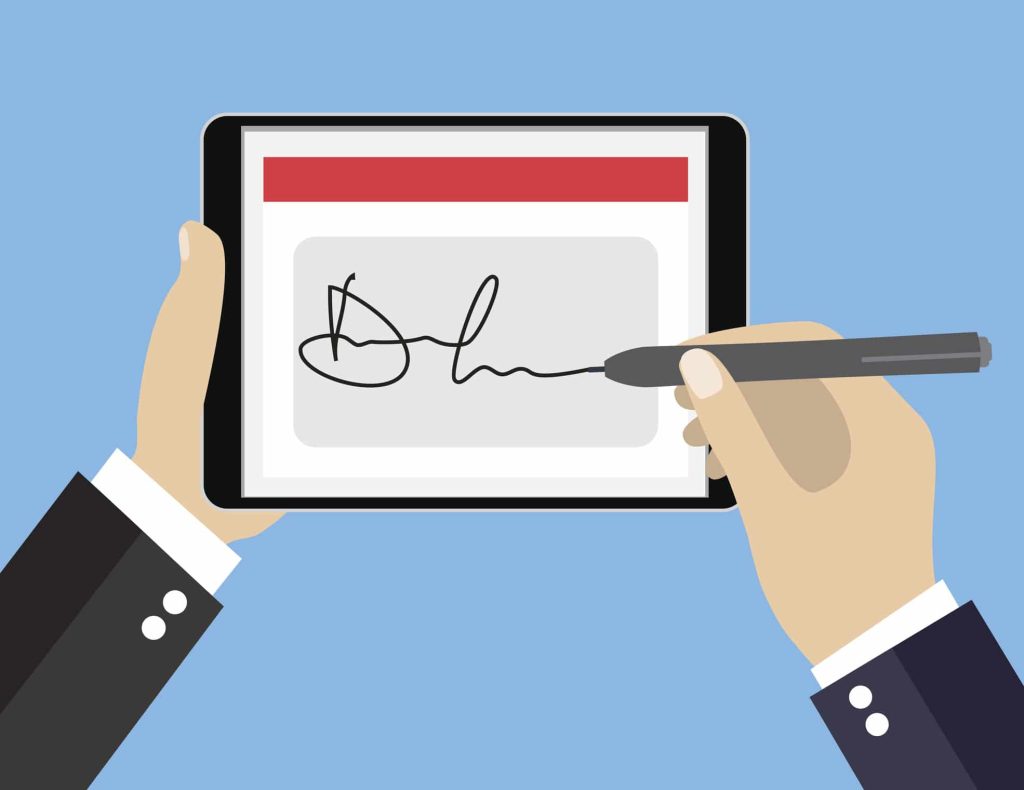There’s a good chance you have used an electronic signature lately. Beyond credit card slips and package receipts, even real estate contracts are digital these days. Can you sign your estate planning documents electronically? Would a “digital will” be valid in Arizona right now?
What is a digital will?
Before deciding whether a digital will is valid, it makes sense to figure out what the term even means. In the rush to be cutting edge, many people use the phrase to mean different things.
One common problem facing modern Americans involves their online presence. Do you have a plan for dealing with your social media pages, your e-mail accounts and your online logins after your death? Of course, you might become incapacitated before your death — who has power to handle all of those items in that event?
Taking care of your digital assets is important. You should figure out how to handle passwords, login information and social media succession. We’ve written about that before, but it’s not what we’re discussing here.
Usually the phrase “digital will” (or “electronic will”) describes an electronic document intended to serve as your last will and testament. It might also include your living trust and powers of attorney.
Would such a thing be valid in Arizona? Probably not. But maybe it would in Australia.
What’s going on in Australia?
A recent series of cases from Australia has raised questions about digital wills. None of the Australia cases would be useful as precedent in Arizona probate courts, but they do give you some idea about how the questions might arise.
Take the tragic case of Mark Nichol, who took his own life in October of 2016. When a friend of his widow opened his cell phone to look for contacts, she found a text message apparently typed out by Mr. Nichol just before his death. He never sent the message, but he did refer to it as “My will” and included language disinheriting his wife and son.
Last month a Queensland, Australia, judge decided that Mr. Nichols’ unsent text message was admissible as his last will. That was a surprise in much of the English-speaking world. But it relied on particularly relaxed Australian laws on what a will should look like.
Mr. Nichols’ text message followed the cell phone will of Karter Yu, a Queensland court case with very similar facts. Mr. Yu had created a number of documents on his iPhone just before committing suicide in 2011. One of those documents began with “This is the last Will and Testament of Karter Yu”, and the court ruled that it was.
But never in the U.S., right?
A number of probate cases in the U.S. have raised questions about digital wills. The two best-known:
- In 2002, Tennessee resident Steve Godfrey typed out a one-page will on his computer, and put a cursive-font “signature” at the end. He printed it out, showed it to two friends, told them it was his last will, and got them to sign as witnesses. That document was admitted to probate in 2003 in Taylor v. Holt, with the court ruling that his typed name could serve as a “signature” because he acknowledged it to his friends.
- While in the hospital, Javier Castro wanted to sign a will but no one could find pen or paper. His brother used a tablet computer to write out what Mr. Castro dictated — and then handed it to Mr. Castro to sign using a stylus. An Ohio probate judge found that the will was “signed” by Mr. Castro and his witnesses, and introduced a printed copy of the tablet file as his last will.
Growing acceptance of electronic signatures makes digital signing of wills seem inevitable. Can you sign your will digitally right now, in Arizona?
No. Not yet. Well, maybe. Lawyers just hate absolute answers, so let’s go with “it depends.”
Arizona does not recognize digital signatures on wills — yet. A bill in the Arizona legislature last year would have made it possible to sign an Arizona will electronically, but that bill did not pass. Its sponsors say they will be back next year with a better bill.
What about other states?
Next-door neighbor Nevada, meanwhile, did adopt a new digital will statute last year. In theory, it allows anyone to sign a will digitally, and to simply declare that the will is a Nevada will — without regard to where the signer was located at the time.
A similar bill passed the Florida legislature last year, too — but it was vetoed by Florida’s governor. It’s likely that the Florida sponsors will be back next year, just as Arizona’s sponsors have indicated their intentions.
Other bills were introduced last year in Indiana, Virginia and New Hampshire. Expect to see more developments in some or all of those states. Meanwhile, the Uniform Law Commission is developing a model digital will statute for adoption in states interested in pursuing the idea.
Could you sign a digital will under, say, Nevada law — right now and in Arizona? Perhaps. But it would be unwise at this point. If you can find pen and paper, stick with written wills for the time being. We’ll update the suggestion as the law develops in Arizona.
Oh, and what about your powers of attorney, and your revocable living trust, and the letter of instructions to your trustee? Don’t get us started.
Actually, you can get us started. You can tune in to our YouTube livestream webinar on digital wills in Arizona, at 1:30 PM (Arizona time) on November 30. Check out our YouTube channel in the meantime.



